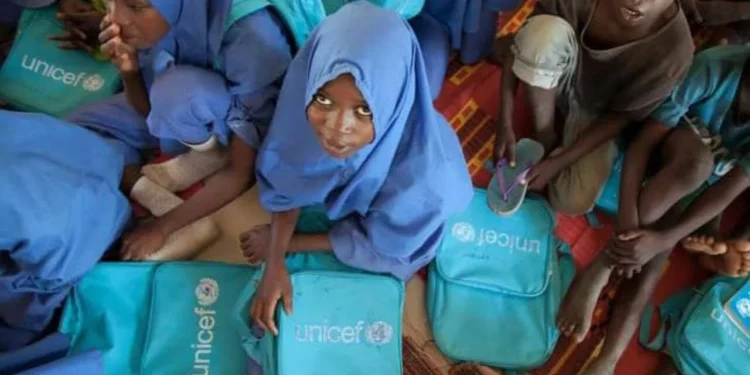The European Union, EU-funded consortia led by Plan International Nigeria will enroll 324,000 children in Kano, Jigawa and Sokoto states through the implementation of ‘Accelerated Basic Education Programme (ABEP)’.
The EU Consortium Lead and Education Advisor of Plan International Nigeria, Tobi Ransomed, disclosed this during the project startup workshop in Kano on Wednesday.
Ransomed said that Plan International is an independent development and humanitarian non-profit organisation that advances children’s rights and equality for girls.
She said that the Federal Government of Nigeria launched ABEP to ensure that out-of-school children return to school in 2022.
According to her, the launch is under the auspices of the Nigerian Educational Research and Development Council (NERDC), with funding support from the EU and Plan International Nigeria.
The lead and education advisor said that ABEP was an abridged programme for school-age children who had dropped out of school or had never been to school before.
Ransomed explained that the three-year programme would be implemented in partnership with PI, Save the Children International, SCI and Dispute Resolution and Development Initiative, DRDI.
According to Ransomed, the EU project is to be implemented in 12 LGAs with a high number of out-of-school children in the benefiting states.
“It is funded by the European Union, EU, the 3-year project (July 2024-June 2027) will be implemented in Jigawa, Kano, and Sokoto States of Northwest Nigeria.
“According to UNESCO in 2022, Nigeria has approximately 20 million out-of-school children and youth (OOSCY), with the North-West region contributing 3.49 million.
“The region is faced with high poverty levels, forcing many children into economic activities rather than schooling.
”They are also faced with frequent attacks on schools and kidnappings, gender discrimination and early marriages of the girl -child; poorly resourced schools, teacher shortages, and hidden costs associated with education,” she said.
Ransomed said that they would be trained on green jobs, and developing critical skills for women, girls, youths and nomads in the 3 States.
According to her, they are doing it through the vehicle of ABEP, a non formal form of education and usually for children that have been out of school for a while.
She said, “We are looking at children between 10-years-old and 18-years-old.
”We worked with consultants led by NERDC and some recognised consultants in Nigeria to come up with accelerated ABEP, which encapsulated the nine years of basic education.
“It is a programme that has already been verified and accepted by the Federal Ministry of Education in Nigeria. And the EU has actually committed 10 million Euro to carry out the three year project.
“We are looking at a total of 12 LGAs. Kano has the highest with 5 LGAs while Sokoto and Jigawa have 4 and 3 respectively.
”We selected the LGAs with high numbers of out-of-school children and underserved communities. Similarly, over 10 per cent of target is nomads and also children with disabilities.”
Ransomed said the project is targeting 324,000 young boys and girls for ABEP alone for teaching, learning and non formal education.
”Out of the 324,000, we will identify 60,000 that will support them in vocational skills.
”This is because some children might not wish to continue into secondary or tertiary institutions but want to have skills.
“We are also targeting quite a number of them through activities such as Village Savings and Loan Scheme while in the schools.
”We will have peace clubs for the children to ensure we are pushing peace building and conflict resolutions in schools,” he stated.
Earlier, the acting Executive Secretary, Kano State Agency for Mass Education, Surajo Alkali, described the project as a welcome development.
Alkali said the project was in line with the agenda of Gov. Abba Yusuf who had declared a state emergency on the education sector in the state to address the deplorable state of education.
Some of the stakeholders, who spoke at the workshop lauded the Federal Government and international organisations for their efforts to enroll children in the areas.(NAN)























